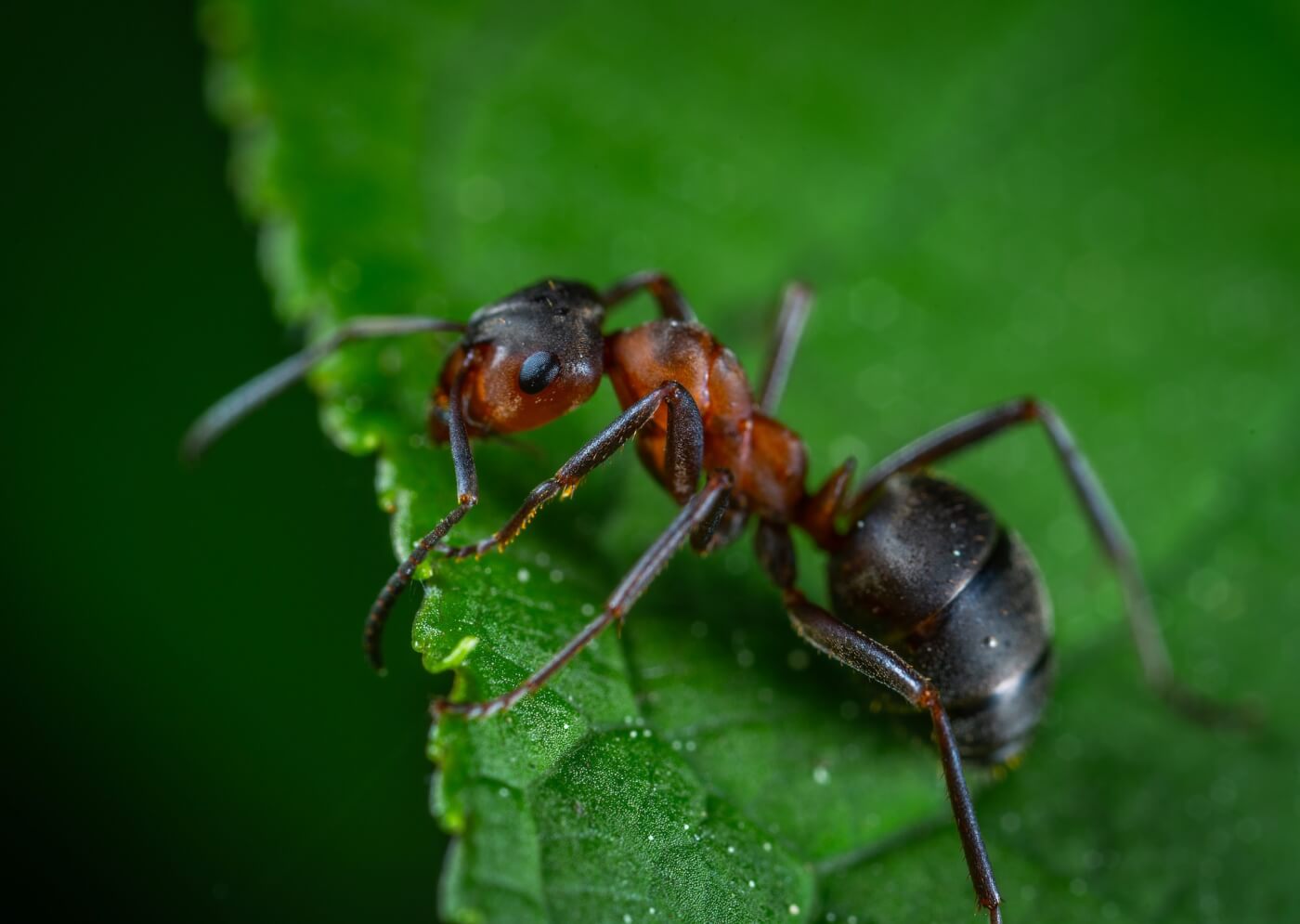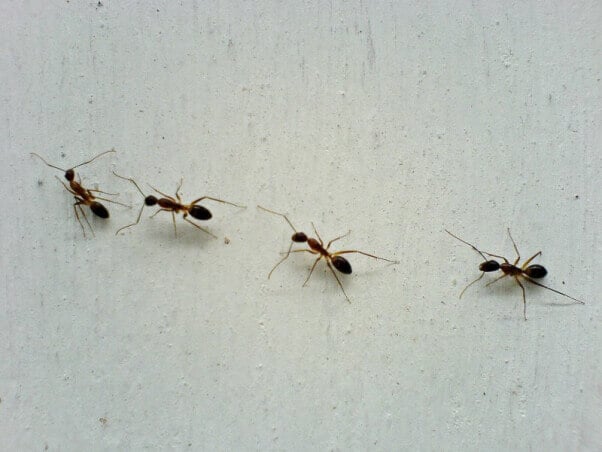Ants are fascinating. Did you know that some do a particular waggle or “dance”—akin to honeybees—to recruit workers in order to mine a food source? Are you aware that one way ants “hear” is by interpreting surrounding ground vibrations through sensors on their feet and knees? Countless reasons abound for why humans should respect them. March alongside as PETA highlights ant facts that will provide a glimpse into their remarkable lives. We’ll even reveal how to kindly keep them—and other insects—out of your home.

Fascinating Ant Facts
Similar to the complexities of cockroaches and other insects, ants display many distinct and intriguing characteristics. Myrmecologists—scientists who study ants—have found out the following:
- They’re extremely social, and some communicate by using their antennae or sending out chemical signals—pheromones—to convey messages as varied as danger warnings, locations of food sources, and mating calls.
- They’ve been around for about 100 million years.
- They can be found on every continent except—funnily enough—Antarctica.
- There are 600 known species of them in the U.S. and over 12,000 species worldwide.
- Different species of ants have different food preferences.
- They live in colonies that usually center around one or more egg-laying “queens.” In each colony (aka “formicary”) every ant has an individual job. Smaller female worker ants care for the queen and her eggs, construct and maintain the nest, search for food, and tend to the young ants. Male ants grow wings and serve the sole function of mating with the queen.
- Discovered in Argentina in 2000, the biggest ant colony yet observed covered over 3,700 miles, combining at least 33 ant groups into a cohesive supercolony.
- They can carry five to 20 times their bodyweight and, when necessary, collaborate cooperatively in small groups to transport heavier objects.
- Their combined weight is equal to about one-fifth of the combined weight of all humans.
PETA supports compassion for the most curious, smallest, and least sympathetic animals, including ants—and we hope that after learning these facts about ants, you will, too.
How to Help Ants Find Their Way out of Your Home
There are ways to keep ants outside the house without using toxic chemicals, so before homeowners reach for ant traps or bug spray or call the exterminator, they should know that the toxic chemicals that kill ants are also harmful to humans and that scientific studies show that ants are intelligent animals who likely feel pain.

Did you know that, similar to human gardeners, some ants use bacteria to produce higher-yielding, nitrogen-rich gardens? Or that leaf-cutter ants will overcome roadblocks between their colony and a food source by cutting smaller pieces of leaves and adding more workers to the line? And one study found that ants and other insects have the same chemical in their bodies that’s known to transmit pain in humans.
Follow the tips below for humane and safe ant control in your home:
- Remove sources of attraction. Keep your kitchen clean. Wash countertops, floors, and cabinets with equal parts vinegar and water. Don’t leave crumbs or garbage around, and keep all food, including companion-animal food, and trash in tightly sealed containers. Don’t leave uneaten companion-animal food in bowls, don’t feed animal companions outdoors, and never feed wildlife. Remove objects in the yard that may attract moisture (e.g., children’s pools, flowerpots, barbecue grills, sheet metal, boards, large pieces of debris, bricks, logs, etc.), trim back vegetation, and remove furniture and debris near the house.
- Locate the source of the ants. When you see ants in your home, try to follow them back to the point where they entered. Use caulk to seal all possible entrances into the house, remembering that ants are tiny and can fit through almost any small opening. Apply weather stripping under doors.
- Use natural ant repellents. If ants are coming in through the cracks of doors and windows, pour a line of cream of tartar where they enter the house, and they won’t cross over it. A cinnamon stick, coffee grinds, chili pepper, paprika, cloves, or dried peppermint leaves near the openings will repel ants. You can also squeeze the juice of a lemon at the entry spot and leave the peel there. Planting mint around the foundation of the house will also keep ants away. Place cloves of garlic around indoor and outdoor ant pathways.
- Use only nontoxic commercial repellents. A product called “Orange Guard” is a nontoxic organic ant repellent that is harmless to humans and other animals and will drive ants away from areas where they are not wanted. However, when applied directly to ants, the active ingredient d-Limonene (orange peel extract) destroys the waxy coating of the insects’ respiratory systems, causing them to suffocate, so please do not spray ants with the repellent. Simply spray the repellent around your home—the citrus fragrance of d-Limonene will repel the ants without killing them.
Learn More About Ants and Other Intriguing Insects
Even the late caustic comic Joan Rivers expressed compassion for ants. It’s easy to extend kindness to them, wasps and bees, spiders, and all other insects.
Never support the use of ants for absurdly cruel vanity products, such as acrylic nails that trap and slowly suffocate them.
Lastly, learn how to escort bugs back outside humanely:
Text VEG to 73822 to get the latest vegan lifestyle tips, recipes, and urgent action alerts texted right to your phone.
Terms for automated texts/calls from PETA: https://peta.vg/txt. Text STOP to end, HELP for more info. Msg/data rates may apply. U.S. only.






